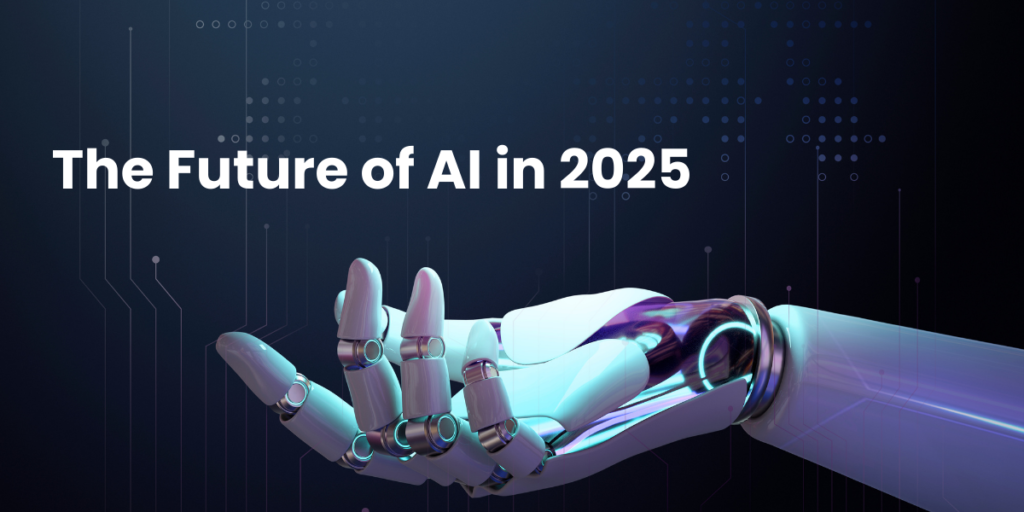
If you think you’ve heard all there is to know about artificial intelligence (AI), think again. While the world has already begun to see the vast implications of AI in everyday life, we’re still at the tip of the iceberg. As we head into 2025, AI isn’t just a tool we use it’s becoming something that will actively shape the course of our lives in ways we can’t fully predict. From the way we work to how we interact with loved ones, AI is stepping in as a co-pilot for humanity.
But how exactly will this happen? Let’s take a closer look at what our relationship with AI will look like in just a few short years and how we can start preparing for it today.
1. AI Will Be Your Personal Assistant Like Never Before
It’s no secret that AI has already revolutionized the workplace. But in 2025, AI will evolve beyond simple scheduling assistants or automated email filters. Picture this: an AI so intelligent that it understands your moods, habits, and even personal preferences. It will help manage your day, not just based on tasks but in a way that makes your entire lifestyle more balanced.
Imagine a morning routine where your AI assistant not only wakes you up at the perfect time, adjusts the temperature in your home, and suggests an outfit based on the weather, but also curates your to-do list, checks your health stats, and even suggests a meditation session tailored to your stress levels. By 2025, AI will no longer be an afterthought it will feel like a real-life collaborator, helping you thrive every day.
2. Work-Life Balance: AI Will Help You Find It (or Lose It)
AI’s impact on work is one of the most talked-about developments, but here’s the twist: in 2025, AI will play a critical role in helping you find balance, or push you to rethink it altogether.
As AI takes over more routine and repetitive tasks, your job will evolve to focus on creativity, decision-making, and human connection. But what if your job begins to demand constant availability? Your AI-powered assistant will play an even bigger role here, helping you set boundaries, manage time, and even suggest when it’s time to unplug.
However, there’s a catch. In some industries, AI will make work so efficient that businesses might push employees to be “always on” in ways that blur the lines between work and life. It’s a double-edged sword AI can help us optimize our work-life balance, but we need to set clear guidelines for how much autonomy we want to give up.
3. AI in Healthcare: The Personal Doctor You Never Knew You Needed
We already see AI in healthcare helping diagnose diseases or predicting patient outcomes. But by 2025, it will be as though you have your own personal, hyper-intelligent healthcare assistant available at your fingertips.
Wearables will do more than count steps; they’ll track vital stats 24/7, alerting you if something’s off and suggesting lifestyle changes in real-time. Imagine an AI that knows your personal health history, genetic predispositions, and daily activities, and it can give you tailored advice on what to eat, when to exercise, and how to manage stress. It’s not just about saving lives—it’s about empowering individuals to proactively manage their health.
4. AI-Powered Creativity: The Artist, The Writer, and You
AI has already shown its ability to create art, music, and even write articles. But in 2025, AI will be an essential co-creator in every field. Rather than replacing human creativity, AI will act as a partner, offering suggestions, ideas, and endless inspiration.
Imagine using AI to help you write a novel. Instead of generating the entire book for you, it would understand your writing style, suggest plot twists, or even improve dialogue. In music, it might help you create a new genre based on your tastes or introduce you to sounds you never thought of. The line between what’s “human” and what’s “machine-made” will blur in 2025, leading to a more collaborative, experimental, and dynamic creative process.
5. The Evolution of Social Interactions: AI as the Connector
What happens when AI is no longer just a set of algorithms but a social connector in your life? In 2025, you might find AI becoming more than a tool or a service it could become a social companion, guiding your interactions both online and offline.
Whether it’s an AI that recommends friends with similar interests, an AI-driven social platform that curates meaningful conversations, or even virtual companions who provide emotional support, AI will be woven into the fabric of our relationships. This could feel liberating, offering more connection in an increasingly disconnected world. But it also raises important questions about privacy, identity, and trust.
6. AI and Sustainability: Saving the Planet One Algorithm at a Time
Sustainability is one of the greatest challenges facing humanity today. In 2025, AI will step up as a major player in the fight against climate change. With its ability to analyze huge amounts of data, AI will optimize everything from energy usage in homes and businesses to predicting environmental trends and natural disasters.
Consider how AI-powered systems will help farmers reduce water waste, or how it will help cities manage resources more efficiently. Climate science will be dramatically improved by AI’s ability to model and predict weather patterns, giving us more time to prepare for extreme weather events.
7. Ethical AI: A New Conversation in 2025
With all of AI’s potential comes the challenge of ensuring that it’s developed and used ethically. By 2025, we’ll have made significant progress in defining what ethical AI looks like. Companies and governments will have established strict guidelines for transparency, fairness, and accountability, ensuring that AI’s power is used for the greater good.
But it’s not just about setting rules it’s about fostering a culture where ethical concerns are built into AI development from the start. This will be a defining moment for the future of AI, as we strive to balance innovation with responsibility.
8. The Future is Now: AI as a Reflection of Us
One of the most profound impacts AI will have by 2025 is how it mirrors human behavior and adapts to us. As AI becomes more integrated into our lives, it will begin to understand the nuances of our emotions, biases, and needs. In doing so, it will become not just a tool for efficiency but a reflection of our humanity.
AI will help us understand ourselves better whether it’s by highlighting patterns in our behavior, guiding us in making better choices, or even helping us navigate complex personal dilemmas. It’s not just about making life easier; it’s about making life more meaningful.
Conclusion: Getting Ready for the AI Revolution
By 2025, AI will no longer be something we just “use” it will be something that lives alongside us, transforming how we experience the world. From personal assistants to health monitors, AI will be our collaborator, guiding us toward a future that’s as efficient as it is personal.
But with all this potential, the question remains: how will we shape this future? The answer is simple: we must embrace AI with both excitement and caution. As we move into this new era, the most important thing we can do is start preparing for the changes that lie ahead. After all, the future isn’t coming it’s already here.

